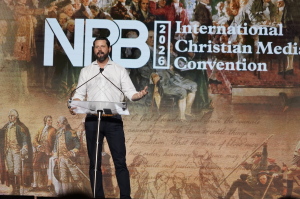Christian Apologist William Craig's Children Books Answer 'What Is God Like?'
In an effort to equip children with answers to questions about God and solidify their faith as they grow older, Christian theologian Dr. William Lane Craig has a series of children's books titled, "What is God Like?"
Brian Auten, who is the director of Reasonable Faith Belfast and founder of Apologetics 315, announced on his blog recently that Craig's books in the series "are quite amazing in their simple presentation of deep truths about God. (My own 5-year-old girl loves them and can explain what it means for God to be spirit and even what self-sufficient means, among other things.)"
The series of ten illustrated booklets are being released two at a time about every month. Publishers say the books are designed to help parents teach Christian truth to their children and answer some of their deepest questions about God.
"These easy-to-understand booklets cover the principal attributes of God, such as omnipotence, omniscience, omnipresence, eternity, self- existence, and so on," reads a description of the series online at ReasonableFaith.org.
Craig has been drawing for his family pictures of the endearing characters Brown Bear, Red Goose, and their two children Charity and John for several decades. For the book series, illustrator Marli Renee teams with Craig to feature characters that help to make deep theological truths accessible and exciting for children.
Publishers say Brown Bear, Red Goose, and their children form a traditional – though rather unusual – loving family in which Papa models the biblical role of fathers in bringing up children in the instruction of the Lord (Ephesians 6:4). The ten booklets in this series "aim to stimulate intellectual curiosity in your children when they have questions about God. The stories thereby serve as a springboard to further conversations with them about spiritual things."
The importance of having answers to questions about God is often illustrated by apologists who say young people, upon entering college, often fall away from their faith because they were not equipped to counter the relativism and non-Christian philosophy prevalent in schools.
"When I travel around the country speaking in various churches, I meet parents all the time who come up to me after the service and say something like this: 'Oh, if only you had been here two or three years ago! Our son (or our daughter) had questions about the faith which no one could answer. And now he (or she) is far from the Lord.' It just breaks my heart to meet parents like this," said Craig, as reported in the blog, "Well Spent Journey."
"The fact is that our Christian high school students and college students are intellectually assaulted in secular high school and university by overwhelming relativism conjoined with every manner of non-Christian philosophy," Craig explained. "We dare not send these kids out to battle armed with rubber swords and plastic armor. We need to prepare our kids for war….Begin simple, get more profound as they grow. It's not enough anymore to just read Bible stories to our kids. They need doctrine, and they need apologetics.
"I have to tell you the truth: I find it very difficult to understand how parents today can risk having children without having had some training in Christian apologetics. I think it's that important!"
Five booklets of the series are currently available and are described at the Reasonable Faith website page offering resources for children here.
The first book, for example, "What is God Like?: God is Spirit", is about what theologians call the "incorporeality" of God (God's being pure spirit without a body). It helps to correct the popular misunderstanding that God has a body. In providing correct teaching about God, God Is Spirit also teaches children about the difference between our soul and body, publishers state. It thereby raises important issues about what happens to a person when he dies and serves as a springboard for discussion with children about the Christian hope of life after death.



























